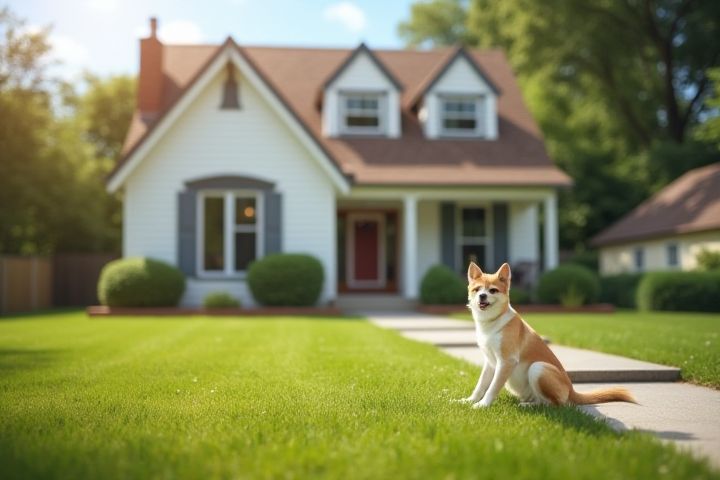
To locate your ideal rental property, first determine your budget, including rent and additional costs like utilities and maintenance. Utilize online platforms such as Zillow, Craigslist, or local real estate websites that list rental options based on your criteria. Consider the neighborhood's amenities, public transportation availability, and proximity to your workplace or school to ensure convenience. Schedule visits to potential homes to assess their condition, layout, and overall environment, paying close attention to details like safety and noise levels. Lastly, read the lease agreement thoroughly to understand your rights and obligations as a tenant before making a commitment.
How To Find The Perfect House For Rent
Determine budget
To find the perfect house for rent, start by determining your budget, which typically should not exceed 30% of your monthly income. For example, if you earn $4,000 monthly, aim to spend no more than $1,200 on rent. Consider additional costs such as utilities, maintenance fees, and renters' insurance to get a comprehensive view of your financial commitment. By establishing this budget early, you can streamline your search and focus on properties that align with your financial capabilities.
Identify preferred location
Identifying your preferred location is crucial in finding the perfect house for rent. Consider proximity to essential amenities such as schools, grocery stores, and public transportation. Evaluate safety and noise levels in potential neighborhoods, as these factors significantly impact your living experience. Utilize online tools, such as real estate websites or local community forums, to gather insights about the area's housing market and community atmosphere.
Consider property size
When searching for the perfect house for rent, consider the property size, which is crucial for your comfort and lifestyle. Calculate the square footage to ensure it meets your needs, taking into account the number of bedrooms and bathrooms. For instance, a three-bedroom house typically ranges between 1,200 and 1,800 square feet, accommodating families or groups comfortably. Pay attention to outdoor space as well; a yard or balcony can significantly enhance your living experience, especially if you have pets or enjoy gardening.
Check neighborhood amenities
When searching for the perfect house for rent, you should evaluate neighborhood amenities to ensure they align with your lifestyle. Look for essential services such as grocery stores, schools, and healthcare facilities within a 10- to 15-minute drive. Recreational options like parks, gyms, and local restaurants can enhance your living experience and contribute to a vibrant community. Utilize online tools and local resources to research the availability and quality of these amenities, helping you make a well-informed decision regarding your future home.
Evaluate commute times
When searching for the perfect house for rent, evaluating commute times should be a priority, as it directly impacts your daily schedule and overall quality of life. Use mapping tools or apps to calculate the distance, travel duration, and potential traffic patterns to your workplace or schools. Ideally, aim for a commute of 30 minutes or less; research indicates that longer commutes can contribute to increased stress and reduced leisure time. Consider the availability of public transportation options, as this can enhance your mobility and flexibility within your new neighborhood.
Inspect condition of property
Inspecting the condition of a rental property is crucial for ensuring a satisfactory living experience. Look for any signs of wear and tear, such as peeling paint or damaged flooring, which can indicate maintenance issues. Check for functional utilities, including plumbing and electrical systems; ensuring that they are in good working order is essential for your comfort. Pay attention to the property's cleanliness and any potential pest problems, as these factors significantly impact your overall satisfaction with your new home.
Verify lease terms
Verify lease terms by carefully reviewing critical components such as the duration of the lease, renewal options, and any penalties for breaking the contract. Look for specific clauses related to maintenance responsibilities, pet policies, and security deposits, typically ranging from one to two months' rent. Confirm whether utilities are included in the rental price; this can often affect your overall monthly expenses significantly. Understanding your rights as a tenant, including local laws concerning eviction and tenant privacy, is essential for protecting yourself throughout the rental period.
Assess landlord reputation
To find the ideal house for rent, assessing the landlord's reputation is crucial. Start by checking online reviews or ratings on platforms like Google, Yelp, or local rental websites, where you can find feedback from former tenants regarding their experiences. Verify the landlord's responsiveness by sending a few inquiries; a quick reply can indicate reliability and good management practices. Engaging with current tenants, if possible, can provide insights into the property's maintenance and the landlord's overall professionalism, ensuring you make a well-informed decision for your living situation.
Understand pet policies
When searching for a rental home, thoroughly review pet policies as they can greatly impact your options. Approximately 67% of U.S. households own pets, so knowing whether a house is pet-friendly is crucial. Many landlords enforce weight limits, breed restrictions, or require pet deposits ranging from $200 to $500. Ensure you ask specific questions about additional fees or potential pet rent, which can typically add an extra $25 to $75 per month to your expenses.
Prioritize must-have features
Identifying the perfect house for rent begins with prioritizing your must-have features, such as the number of bedrooms, bathrooms, and proximity to work or schools. A survey conducted by the National Association of Realtors indicates that 65% of renters prioritize access to public transportation, making it crucial to assess nearby transit options. Consider amenities like in-unit laundry, a backyard, or parking space, as data shows that properties with these features typically rent faster and at higher prices. Establish your budget by analyzing local rental market trends, with recent statistics highlighting an average rent increase of 8% in urban areas over the last year.
